Miami-based dance music producers Matthew Van Toth and Julio Mejia have come a long way since their early days sharing music files back and forth through Facebook and Soundcloud. Their unique mesh of hip-hop and tech house influences, reflected in their motto “death to genres,” scored them a monumental first release on Afrojack‘s Wall label, support from the largest names in electronic dance music and a coveted slot on Rihanna’s Diamonds World Tour. Now, GTA is a name that is recognized among music lovers and club goers around the world. The two sat down with DJOYbeat after their set at Electric Forest to talk about EDM festivals such as Electric Daisy Carnival Las Vegas, plus their recent move to Los Angeles.
Tell us about your EDC Vegas experience. How does it stack up to some of the other festivals you’ve played at over the course of your musical careers?
EDC Vegas was definitely one of the most energetic festivals we’ve ever played! Although we’ve done other crazy festivals like Ultra and Coachella, EDC Vegas was on another level because the crowd was so big and loud, not to mention all of the crazy vibes from the rest of the weekend that built up to that moment.
Which artists were you most excited to see and meet, and which ones really impressed you with their performances?
We were really excited to hang out with our buddy Emoh from What So Not! We caught some of his set at EDC Vegas since he played the same day as us, and he really killed it. We actually went on tour together a few months ago and we’ve seen how awesome his music and DJ sets are, but watching it in front of a crazy festival crowd really made us happy and excited!
How did you spend your off time in Vegas? What shows and clubs in particular did you end up going to see?
We pretty much played other parties. We did a club set at Haze in the Aria hotel, a pool party set at our residency at Daylight, a secret strip club set with some friends at Crazy Horse III, and finally EDC Vegas. Besides that though, we just hung out in the lazy river at our hotel and drank with some buds.
EDM has gone mainstream in Vegas. How has the city’s nightlife landscape changed in the past few years, since dance music and festivals like EDC have begun calling it home?
Well, we recently started playing in Vegas frequently, but EDM is definitely the main kind of music everywhere now. Its become a lot more club-oriented. Most of the big clubs book EDM DJs now and even in cabs and elevators they blast electronic tracks all the time.
Are there any major contrasts between the night clubs and nightlife there on the west side versus the club scene in Miami, where you both grew up?
There aren’t too many differences between Miami and Vegas, but Vegas definitely has more bottle service clubs; that’s pretty much it.
What’s the biggest difference for you guys when it comes to building a set for a festival (like the one you performed at EDC) versus building a set for a regular night at a club?
For club sets, we believe that its easier to play weirder tracks since anything pretty much goes. Festival sets, like EDC, would be a bit more planned and thought out and also a lot more energetic and big in terms of sound.
When you say you get to play “weirder tracks,” what in particular are you referring to? What are your favorite genres to experiment with during club shows that you can’t really get away with so much in a festival set?
We really like to play a lot of Baltimore club kind of stuff, and also mix in more tech-y stuff too. Usually we would have to play more intense stuff for a festival set since the crowds are a lot bigger, but with a smaller club crowd we’re free to improvise a bit more.
Speaking of playing to big crowds, were you nervous before getting onstage for your very first large scale performance or did you jump right into it?
I think we kind of just jumped right into it. I want to say that what helped us out a lot was being on that Rihanna tour we did last year. We played like 65 shows with her and every show was like 50,000 people. We kind of got thrown into it; it was like, “Oh hey, entertain these people (they have no idea who you are) for an hour.” Even from the beginning we would just kind of pick a track that we liked and incorporate it into a set with things that we thought people would like, and it just worked out. The more we grew and the more we played the shows, the more we saw what worked with people, even in different parts of the world; there would be songs we would play somewhere else and they still worked. I guess it was just the choices that we made.
So you don’t get jitters anymore?
We had a lot of jitters. We don’t think anybody would not have jitters when they walk onstage and see this massive crowd in front of them and they’re all just watching you.
You both recently moved to Los Angeles, so you’re a lot closer to Sin City. How do you like performing there more often?
Well we go to Vegas once or twice a month now. We have a residency at Light in Mandalay Bay and that’s been really awesome so far!
You guys also just performed at the Electric Forest festival for the first time. What did you anticipate going into it, and how was it different from Ultra, EDC, Coachella, etc.?
Its a whole different vibe. For example, Ultra Music Festival takes place in Miami, in a city where there are beaches, nightclubs, stuff everywhere… but Electric Forest is literally in the middle of a forest, so there are tons of people out there just camping, listening to the many different kinds of music, and whatever, you know? I think its just the whole overall environment that contributes to that feel of a real festival in general.
Many people think that sometimes it can be a little dangerous when you combine too many different kinds of music in one music festival like Electric Forest did, but we’ve seen a lot of success with that kind diverse environment; Coachella is a big example of that. As artists, what do you think about events that bring genres like hip-hop, indie rock and EDM together under the same roof? Do you ever find fans from the complete opposite end of the musical spectrum coming over to hear you guys play?
It seems as though slowly everything is kind of just starting to blend together. During our set at Coachella we had A$AP Rocky come and watch us while we played. We’ve had these kinds of things happen before; we’ll be watching some other artist, like Skrillex for example, perform and we’ll see rappers come out and either play with them or they’ll watch their set; there’s always a bunch of different people. We think everything is slowly meshing into kind of what we’ve always thought to be “music.” Instead of saying, “Oh, there’s this one artist who only does this one thing,” everybody is just starting to mesh together and make new sounds and new things, and that is definitely something that we grew up with in terms of music.
That’s definitely something you guys have managed to do well throughout your career and what caught a lot of people’s attention from the very beginning. What kinds of feedback did you guys receive when you first emerged on the dance music scene as producers, as opposed to now where cross-switching is something we see often and something that has really risen to the forefront of electronic music?
Pretty much what would happen in the beginning was that we would send a demo to someone, and then we would send another demo another week, and so on, and they would tell us, “Ummm… you guys don’t really know what you want to make.” We’ve heard that so many times but the fact of the matter is we want to make everything. It kind of sucks how back then a lot of people thought that was just how it is: you were either a big room DJ or you were a tech house DJ and so on, you know? But then, there are some people just want to be talented at producing, even if its just one thing. As fans of music, and to expand our taste in music, we wanted to make everything. We wanted to be talented at producing everything. That’s why our motto is “death to genres.” We appreciate music for what it is, not just for what its called.
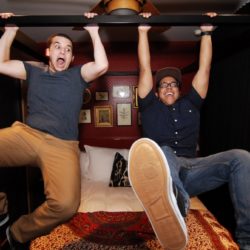
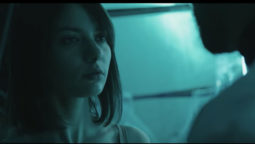
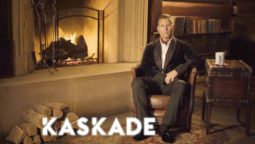
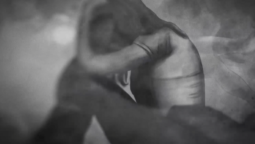
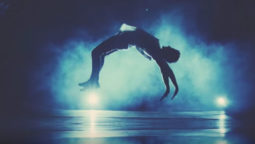
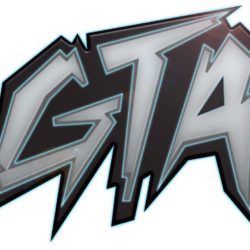

Join the discussion
comments powered by Disqus